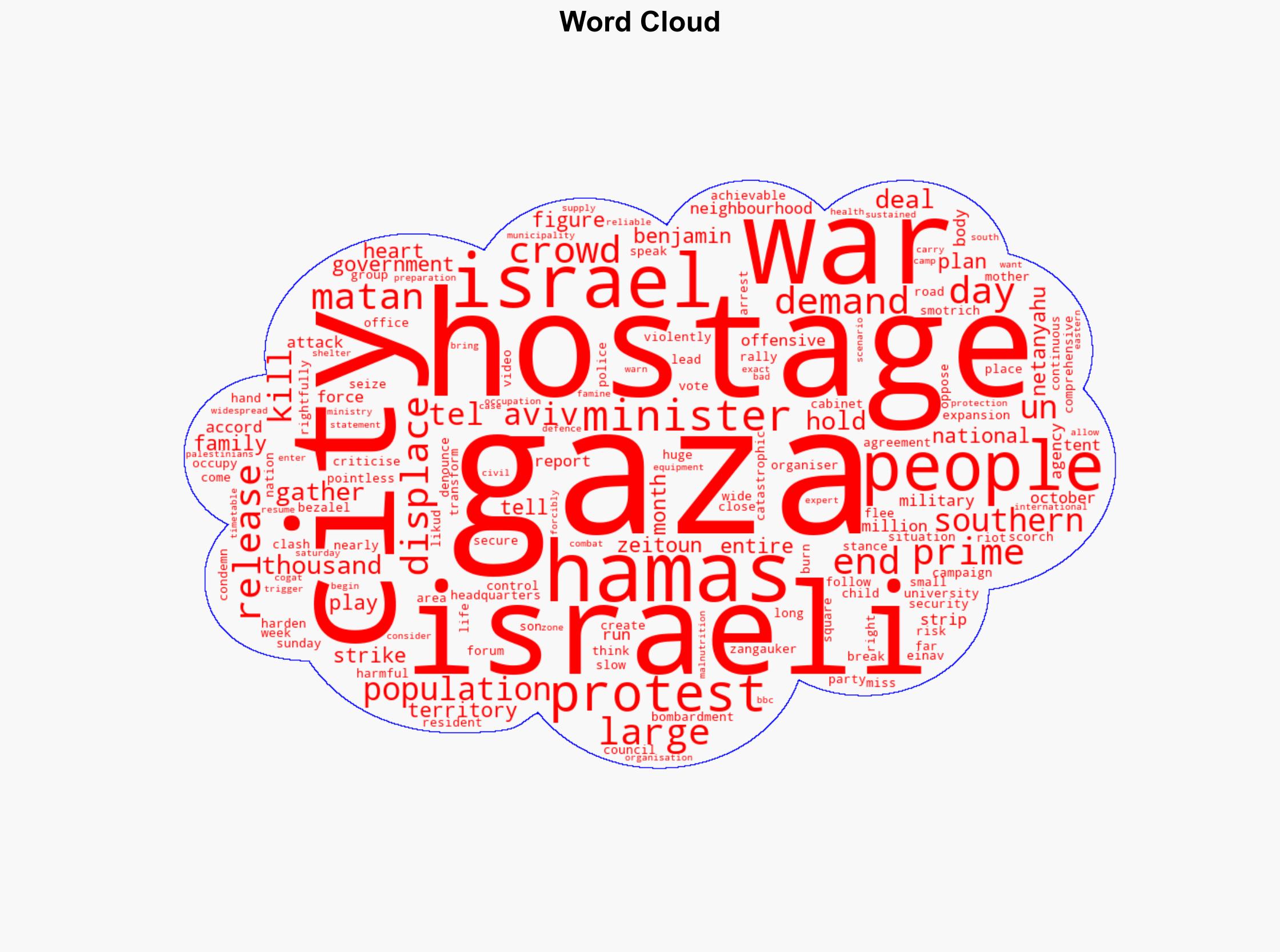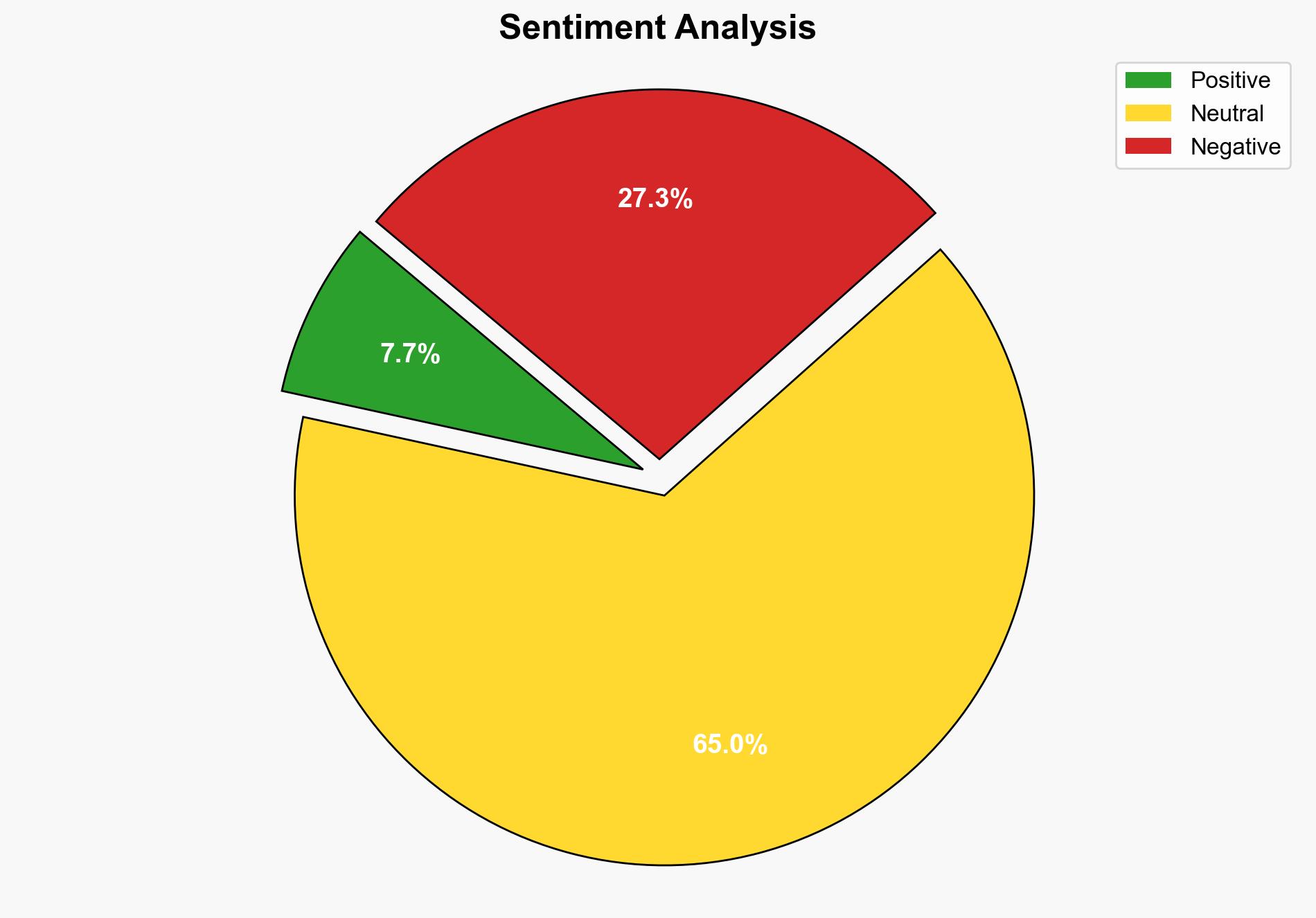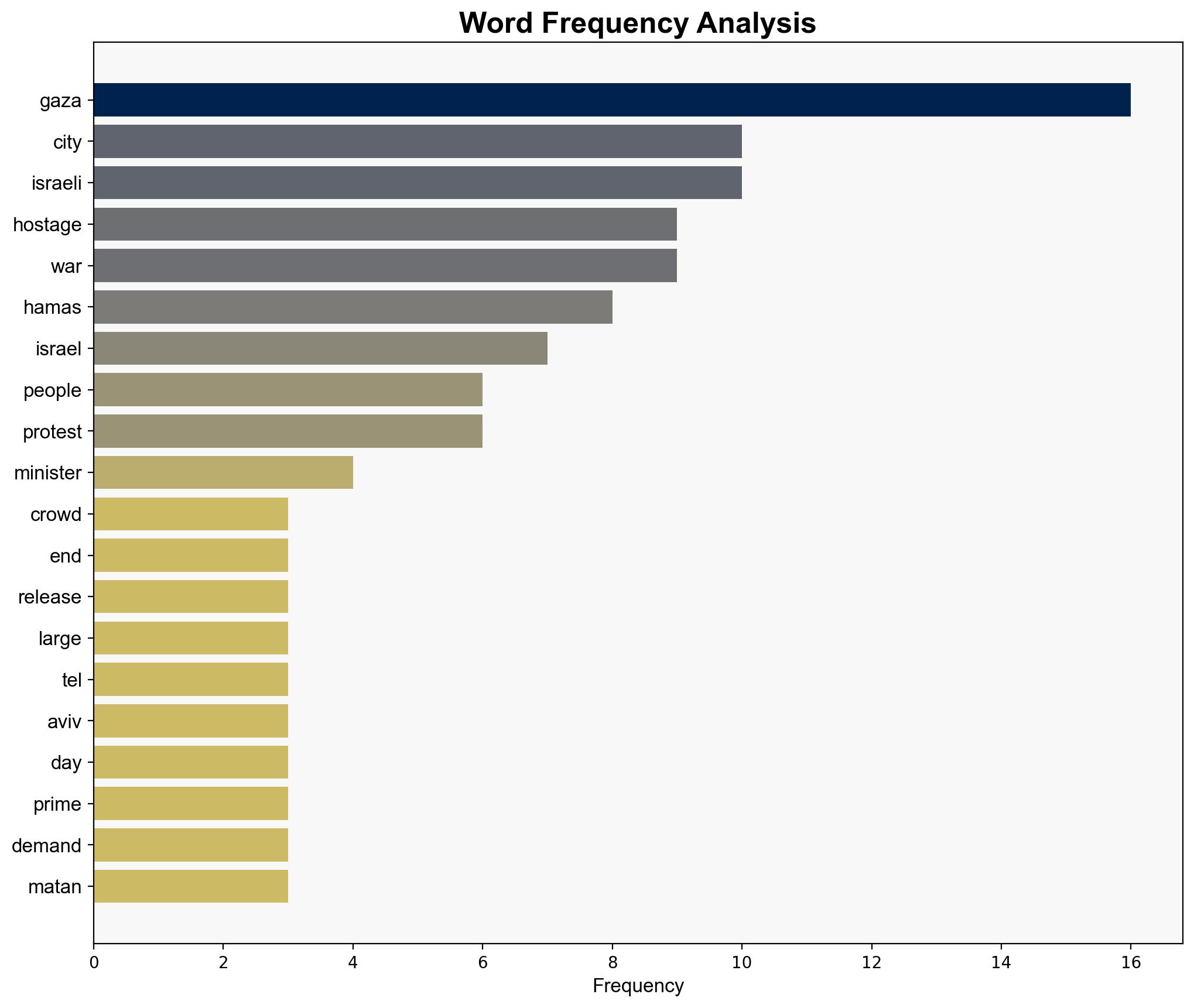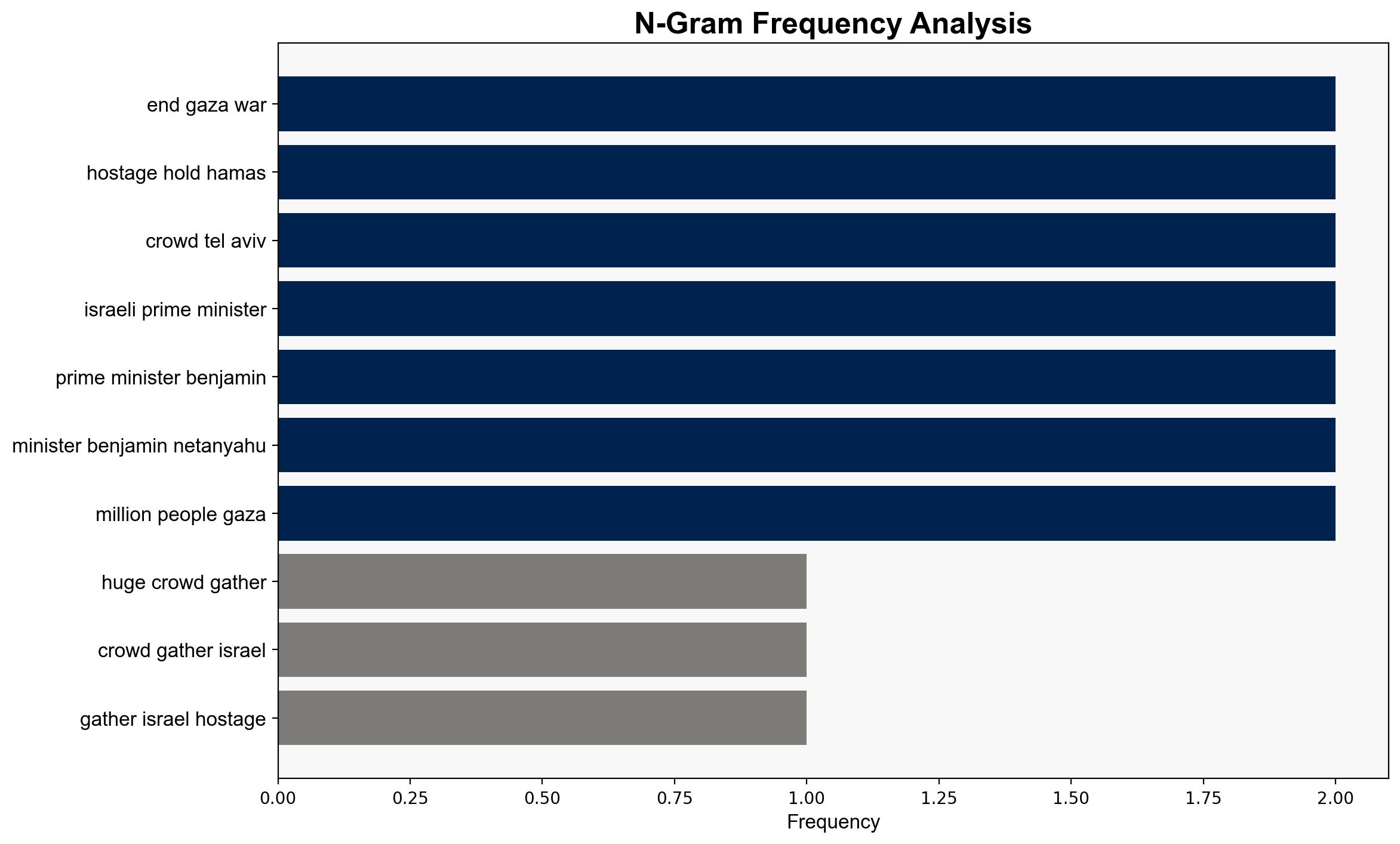Huge crowds gather in Israel calling for hostage deal and end to Gaza war – BBC News
Published on: 2025-08-17
Intelligence Report: Huge crowds gather in Israel calling for hostage deal and end to Gaza war – BBC News
1. BLUF (Bottom Line Up Front)
The most supported hypothesis is that public pressure within Israel is mounting significantly against the continuation of the Gaza war, with a strong demand for a hostage deal. This pressure could influence Israeli government policy, potentially leading to a shift in military strategy. Confidence level: Moderate. Recommended action: Monitor Israeli domestic sentiment and government responses closely, as they could lead to significant policy shifts affecting regional stability.
2. Competing Hypotheses
1. **Hypothesis A**: The protests in Israel will lead to a change in government policy, resulting in a negotiated hostage deal and a de-escalation of military actions in Gaza.
– **Supporting Evidence**: Large-scale protests and national strikes indicate significant public dissent. The involvement of families of hostages adds emotional weight to the movement.
– **SAT Applied**: Analysis of Competing Hypotheses (ACH) suggests this hypothesis is plausible given the scale and intensity of public demonstrations.
2. **Hypothesis B**: The Israeli government will maintain its current military strategy despite protests, prioritizing security objectives over public dissent.
– **Supporting Evidence**: Statements from Israeli officials, including Benjamin Netanyahu and Bezalel Smotrich, indicate a hardline stance. Historical precedence of prioritizing security over public opinion supports this hypothesis.
– **SAT Applied**: Bayesian Scenario Modeling shows a likelihood of continued military action based on past government behavior and current rhetoric.
3. Key Assumptions and Red Flags
– **Assumptions**: It is assumed that public protests will have a direct impact on government policy, which may not hold true given the historical context of Israeli security policy.
– **Red Flags**: The potential for government statements to be strategic rather than reflective of actual policy intentions. The lack of clear data on internal government deliberations is a blind spot.
– **Cognitive Bias**: Confirmation bias could affect the interpretation of protest impact, assuming it will lead to policy change without considering counter-evidence.
4. Implications and Strategic Risks
– **Escalation Scenarios**: Continued military actions could lead to increased regional instability and international condemnation, potentially affecting Israel’s diplomatic relations.
– **Economic Impact**: Prolonged conflict and national strikes could harm Israel’s economy, affecting public support for government policies.
– **Geopolitical Risks**: A shift in Israeli policy could alter regional alliances and affect U.S. and international involvement in the conflict.
5. Recommendations and Outlook
- Monitor Israeli public sentiment and government responses to protests for indicators of policy shifts.
- Engage with regional allies to prepare for potential changes in Israeli military strategy.
- Scenario Projections:
- Best Case: Successful negotiation leads to hostage release and de-escalation.
- Worst Case: Escalation of conflict leads to broader regional instability.
- Most Likely: Continued protests with limited immediate impact on government policy.
6. Key Individuals and Entities
– Benjamin Netanyahu
– Bezalel Smotrich
– Einav Zangauker
– Matan (hostage)
7. Thematic Tags
national security threats, regional focus, public dissent, hostage negotiations, military strategy




